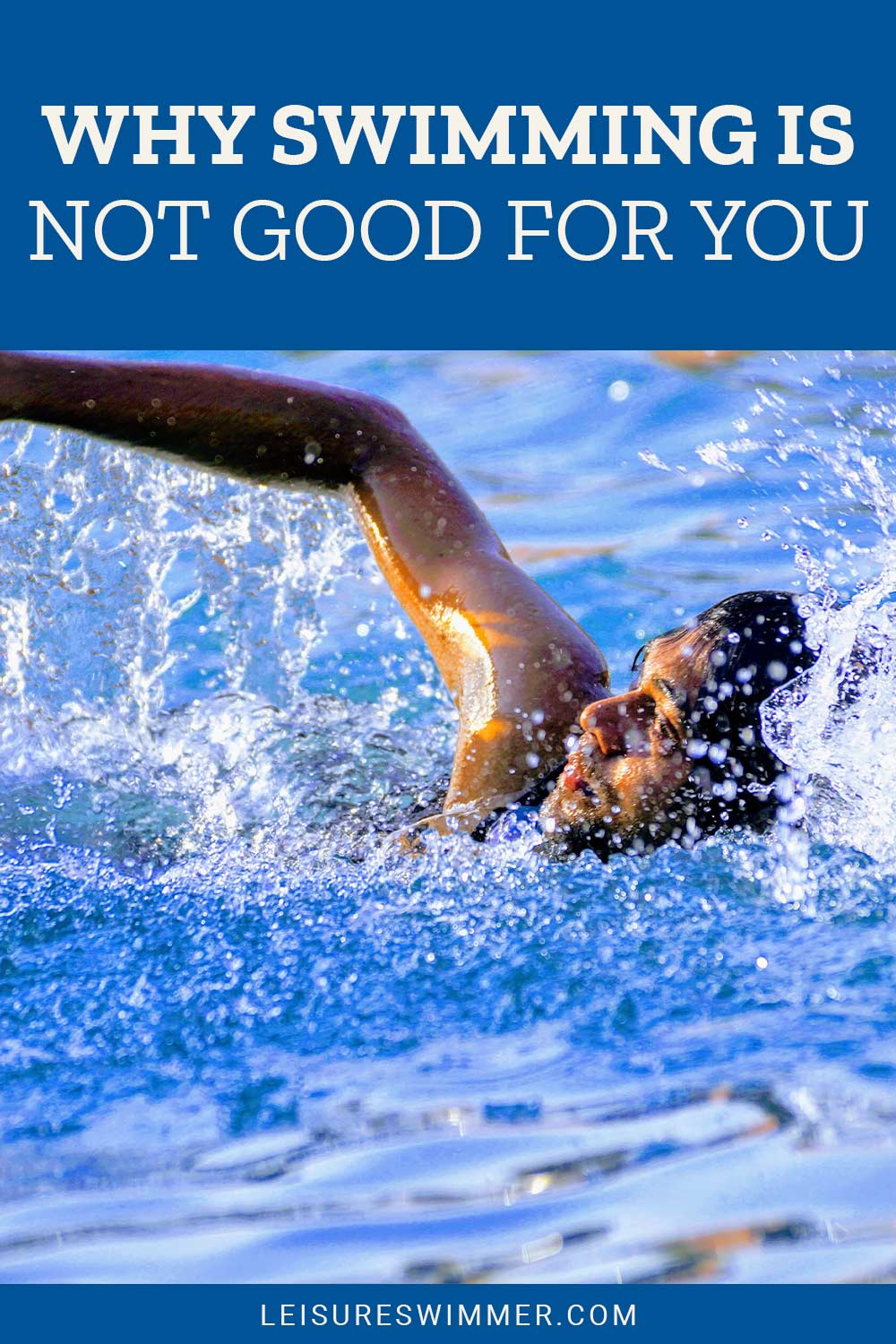Why Swimming Is Not Good For You
We may earn commissions for purchases made through links on our site. Learn more on our about us page.
Although swimming is a great overall body workout, there are several negative aspects of the exercise that many people overlook, willingly or otherwise.
Swimming in any body of water presents risks, but many of these risks are shared across all bodies of water. For example, swimming can trigger severe allergic reactions, irritate the skin and eyes, and introduce pathogens to your body that start an illness.
Keep reading to learn more about the disadvantages of swimming, how to identify these disadvantages in your experience, and how to avoid the disadvantages of swimming.

What are the Problems that Swimming Can Cause?
While swimming is a great way for people to exercise without straining their bodies as much as in other workouts, there are still three main common groups of problems you can experience when swimming. These groupings are:
- Injuries and strains
- Irritations
- Illnesses
Unfortunately, no physical activity comes without the risk of injuries, and swimming is no exception. Although people with back pain and other conditions can benefit from the water’s support, swimming can still injure the shoulders, neck, knees, and arms.
The majority of these injuries come from a combination of the following reasons:
- Insufficient rest between swim sessions
- Poor swimming and breathing technique
- Low strength within involved muscle groups
How Can You Know that it’s Not Good For You?
There is no sense in instantly ruling out swimming as an exercise for yourself unless advised otherwise by a medical professional. Thankfully, several signs help you identify if swimming is unsuitable for you.
Regarding injuries, pain is your body’s natural signal that something is wrong. It could be because of improper swimming technique or a lack of rest between periods of swimming, but no matter the reason, your body is telling you to stop.
If you experience pain after every swim, it may be an indication that swimming is not for you. Take a break from swimming, and you should recover before proceeding appropriately with future swims.
Irritations typically come from the chemicals and minerals in the water. For example, chlorine and hard water can dry out your skin, leading to redness, itchy sensations, and acne.
Chlorine can also irritate the eyes and hair and increase the risk of developing asthma or having an asthma attack.
Depending on the quality of the water you swim in, even small amounts of water that are introduced to the nose and mouth can cause waterborne diseases. Most of these manifest themselves in the form of stomach bugs that cause some discomfort and possibly vomiting.

How Much is Too Much Swimming?
There isn’t necessarily a hard and fast rule for how much swimming is too much, but there are guidelines that you should aim to follow if you are looking to avoid swimming’s potential problems:
- Enjoy shorter swims – it is better to swim a few 30-minute sessions than a single 2-hour-long stretch
- Avoid performing the same exercise every day – there are other workouts that you can do to improve your swimming without getting in the pool. Likewise, you can target different muscles every time you do go swimming
- Limit the number of swim sessions to 6 times a week unless you are a professional swimmer
Is Swimming Everyday Harmful?
Just like any other exercise, doing it every day can be harmful. This is because your body’s muscles need to rest and repair themselves in between sessions. Otherwise, you risk injuring yourself and having sore muscles on a more regular basis.
Depending on what kind of water you swim in every day and whether it is inside or outside, you could be looking at:
- Damaged hair and nails
- Red eyes or an eye infection
- Dry, irritated skin with swimmer’s rash
- Sunburn and aged skin
Who Should Avoid Swimming?
Swimming is great for everyone, but some circumstances might limit how much swimming you should be doing.
Elderly people and others prone to joint injuries should avoid intense swimming sessions and limit their time in the water, so they don’t become tired and potentially drown.
People with an illness or open wound shouldn’t be swimming. Not only can it make your condition worse, but you are also risking the health of everyone else who gets into the same water as you.
Women on their period should also avoid swimming for everyone’s health, but it is possible to take a short dip if a tampon is used properly. Just be sure it is only a short swim and that the tampon is changed right away afterward.
Final Thoughts on Why Swimming is Not Good for You
Oftentimes, people like to praise swimming for its many benefits without stopping to consider the potential drawbacks and risks of swimming. The disadvantages of swimming, like injuries and illnesses, range from minor to severe, but they should not be ignored.
Always consider your and others’ health before going for a swim and use common sense to avoid becoming sick or injured. If you’re ever in doubt, consult a healthcare professional or simply don’t get in the water.


